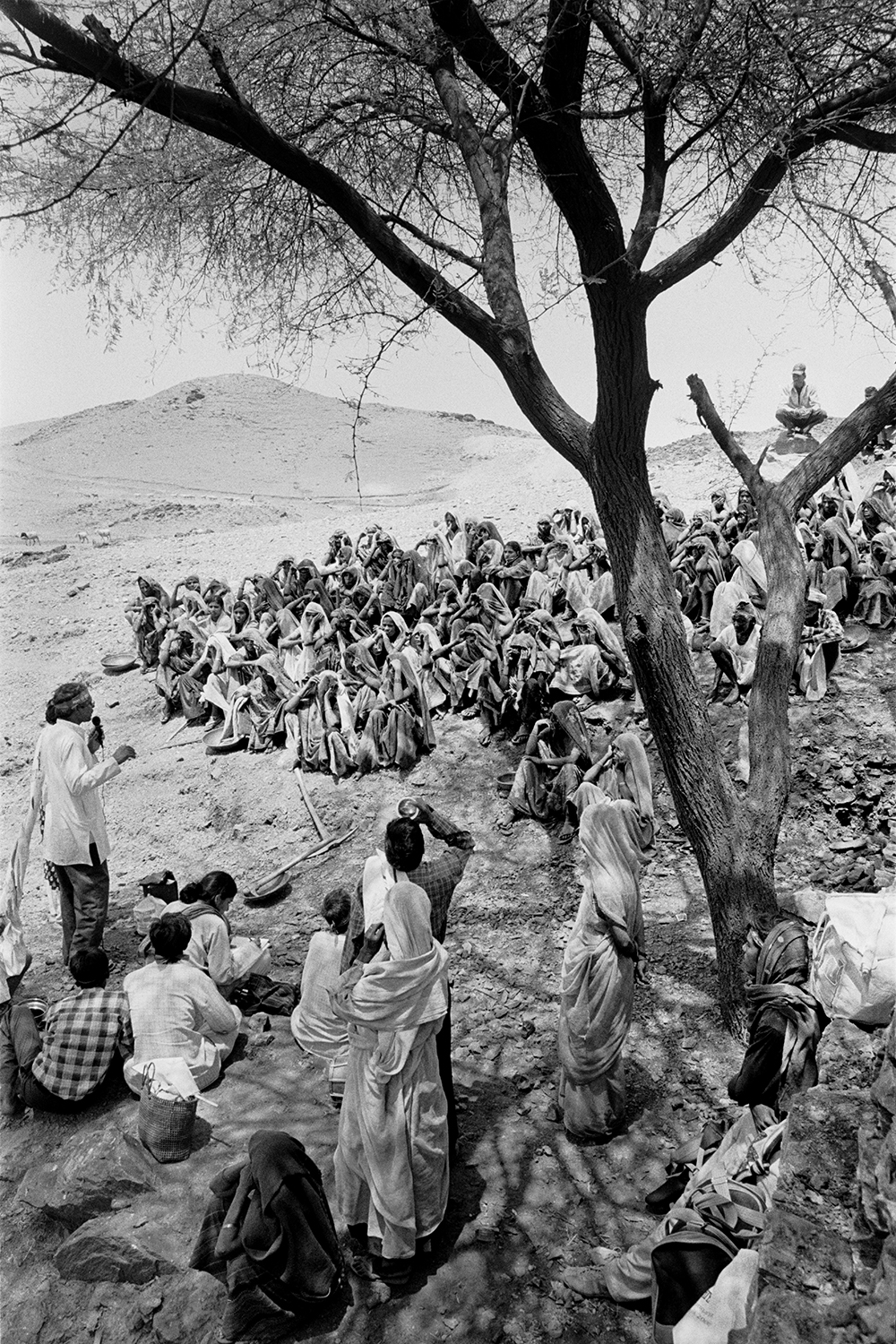Consultations on a National Urban Employment Guarantee Law
The COVID-19 lockdown has exposed the fault lines of our welfare architecture like never before. The flight of migrant workers from our cities once the lockdown was announced in March 2020 revealed just how precarious the situation of urban workers in our cities is. This moment calls for a renewed discussion on long term social security and a right to work for the urban working class. SAFAR along with the Peoples’ Action for Employment Guarantee (PAEG) and the Centre for Sustainable Employment (CSE) at Azim Premji University has initiated a series of consultations to seek views of social movements, unions, campaigns, networks, organizations, researchers and industry to develop a draft protective framework for urban workers. This framework will contain the minimum elements of what should constitute an urban employment guarantee. More details on this public campaign can be found here
The Peoples’ Action for Employment Guarantee (PAEG) formed in 2004, is a loose coalition of peoples’ organizations, activists, media professionals, lawyers and academics which successfully campaigned for the need for an employment guarantee act. Subsequent to the passage of the MGNREGA, it now attempts to play the role of a coalition exercising oversight on the implementation of the Act with the primary objective of protecting workers’ entitlements.

National Workshop on Social Audits
SAFAR along with other organizations and campaigns organized a 3 day national seminar and workshop on ‘Social Audits in India Today and An Agenda for Action’, from 5-7th November 2020. Social audits as a means of democratic governance in India, has grown from strength to strength over the past two decades. The institutionalization of social audits has deepened and its breadth and depth has expanded in creative ways. However, like democracy, social audits in India today are also facing multiple challenges. The workshop brought together more than 40 discussants from civil society, peoples’ campaigns, judiciary, government, audit institutions, social audit units and academia to engage with questions such as: what is the state of government and civil society oversight today? What are the key entitlements that should be tracked across sectors? How can public audits be strengthened?

The discussions over three days provided a much-needed opportunity to reflect on the challenges and opportunities for social audits in India and forge a practical agenda for collaborative action to extend social audits in new areas such as law enforcement, environment regulation, social justice, health and education amongst others.
The agenda, videos of deliberations and additional resources can be accessed here.
Monitoring NREGA implementation
SAFAR, as part of the Peoples’ Action for Employment Guarantee, has helped put together periodic trackers on NREGA implementation and legal interventions on protecting workers’ entitlement under the law.
The Peoples’ Action for Employment Guarantee (PAEG) formed in 2004, is a loose coalition of peoples’ organizations, activists, media professionals, lawyers and academics which successfully campaigned for the need for an employment guarantee act. Subsequent to the passage of the MGNREGA, it now attempts to play the role of a coalition exercising oversight on the implementation of the Act with the primary objective of protecting workers’ entitlements. All NREGA trackers published so far can be accessed here.
Accountability for Whistleblower deaths and intimidation
Since the implementation of the Right to Information (RTI) Act, many RTI users have lost their lives. They were killed for seeking information related to the state of functioning of public programmes and institutions, each of which should have been mandatorily disclosed in the public domain by the Government in line with Section 4 of the Right to Information Act. SAFAR is working with a group of civil society organizations and campaigns to build a collective platform that can strengthen channels of support including legal aid, time bound grievance redress, compensation and dignified access to justice to the families of those who are harassed, threatened and even killed for using the RTI for seeking accountability. SAFAR is also committed to building a web repository of all the RTIs filed and responses received by the whistle-blowers who are murdered in different states of India – starting from Bihar first.
Report on Bihar’s Whistle-blower Deaths and Intimidation
Accountability of Commons
SAFAR, FES and NLSIU are working with a group of civil society organizations, peoples’ movements and campaigns to collectively reflect on the threats faced by commons such as air, water, land, biodiversity, knowledge, culture etc today, and exploring principles and practices of accountability on the basis of which they can be countered. Through these dialogues we will develop conceptual framework for social accountability of and for the commons that can inform further practice and theory.
Accountability Law
SAFAR has been a part of a decade long effort led by civil society organizations based in Rajasthan advocating for an Accountability law. Such a law would empower the public to register their grievances, be heard and acknowledged, and have them redressed in a time bound manner with their participation.

